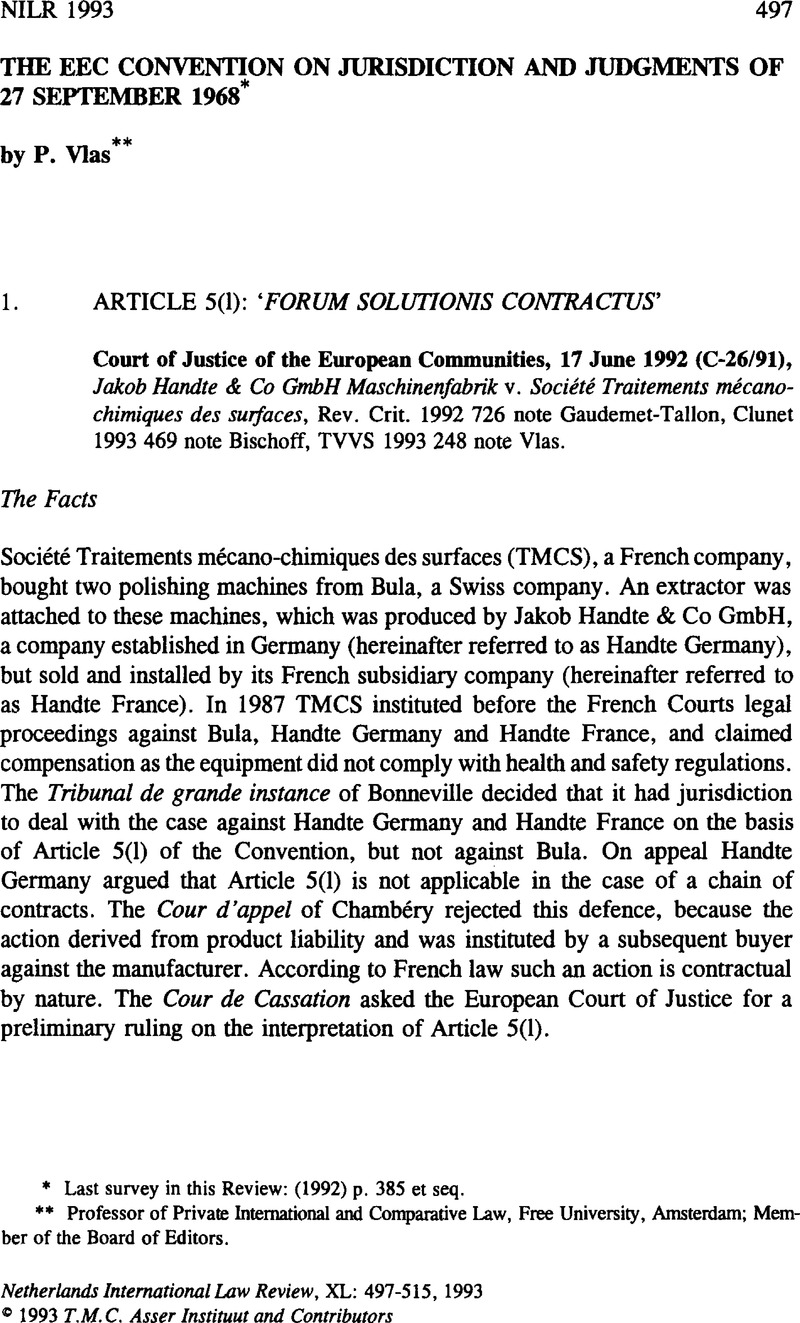No CrossRef data available.
Published online by Cambridge University Press: 21 May 2009

1. The Lugano Convention came into force on 1 January 1992 for Switzerland, France and the Netherlands, on 1 February 1992 for Luxembourg, on 1 May 1992 for the United Kingdom, on 1 July 1992 for Portugal, on 1 December 1992 for Italy, on 1 January 1993 for Sweden, on 1 May 1993 for Norway and on 1 July 1993 for Finland.
2. This 1989 Accession Convention came into force on 1 February 1991 between Spain, France and the Netherlands, and is now in force for all EC countries with the exception of Belgium, Denmark, Germany and Ireland.
3. In German this jurisdictionclause reads as follows: ‘Durch Zeichnung oder Erwerb von Aktien oder Zwischenscheine unterwirft sich der Aktionär für alle Streitigkeiten mit der Gesellschaft oder deren Organen dem ordentlichen Gerichtsstand der Gesellschaft’.
4. In the Powell Duffryn case Art. 17 is applicable in the wording of the 1978 Accession Convention. Under the 1989 Accession Convention the decision would have been the same.
5. See Collection of Conventions (1951–1988), edited by the Permanent Bureau of the Hague Conference on Private International Law, No. XIV. For information concerning ratifications see 40 NILR (1993) pp. 270–273. Art. 5 of the 1965 Convention reads as follows:Google Scholar
‘The Central Authority of the State addressed shall itself serve the document or shall arrange to have it served by an appropriate agency, either -
(a) by a method prescribed by its internal law for the service of documents in domestic actions upon persons who are within its territory, or
(b) by a particular method requested by the applicant, unless such a method is incompatible with the law of the State addressed.
Subject to sub-paragraph (b) of the first paragraph of this article, the document may always be served by delivery to an addressee who accepts voluntarily.
If the document is to be served under the first paragraph above, the Central Authority may require the document to be written in, or translated into, the official language or one of the official languages of the State addressed.
That part of the request, in the form attached to the present Convention, which contains a summary of the document to be served, shall be served with the document.’
6. Art. 55 of the Brussels Convention supersedes the bilateral conventions concluded between the Contracting States, but they shall continue to have effect in relation to matters to which the Brussels Convention does not apply (Art. 56). In the Minalmet case the Dutch-German Convention of 1962 was of course not applicable.